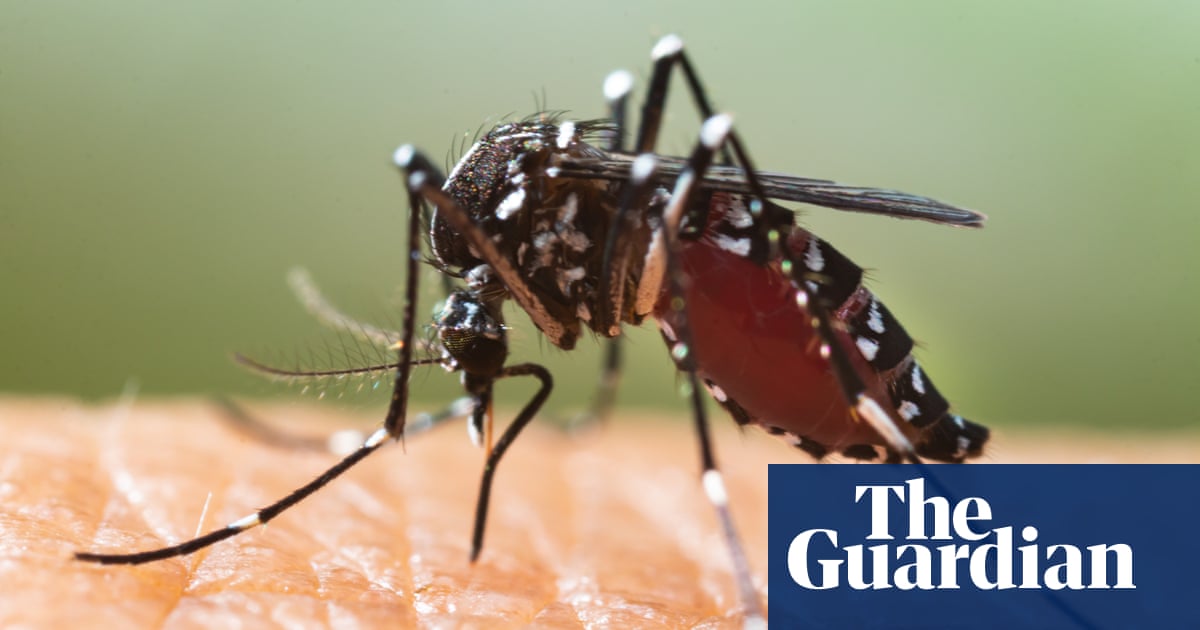According to a health organization, the climate crisis may lead to an additional 10,000 deaths per year in the UK by 2050.

A report has warned that the climate crisis may lead to an additional 10,000 deaths in the UK annually by the 2050s due to high temperatures and the spread of tropical diseases.
According to a report released by the UK Health Security Agency (UKHSA) on Monday, the most concerning outcome would involve a 4.3 degree Celsius increase in average temperatures, resulting in a projected twelvefold increase in deaths related to heat by 2070. The report also states that in the 2030s, there could be a one-and-a-half times increase in deaths.
The data is sourced from the UKHSA’s report titled “Health Effects of Climate Change (HECC)”, which analyzes the impact of the climate crisis on health outcomes in Britain.
It is suggested that illnesses carried by bugs, such as dengue fever or Zika virus, may also spread extensively throughout the UK as a result of the introduction of species from warmer regions.
The report predicts that the Asian tiger mosquito, known for carrying diseases like dengue, Zika, and chikungunya, could establish itself in most of England by the 2040s and 2050s. By the end of the century, parts of Wales, Northern Ireland, and the Scottish Lowlands could also become suitable environments for the mosquito. The report also suggests that London may experience ongoing dengue transmission by 2060.
“The findings of this report clearly illustrate the potential consequences of climate change if we fail to act decisively,” stated Prof Isabel Oliver, the head scientific officer at UKHSA. She also warns of significant effects on both physical and mental health, as well as the exacerbation of current health disparities due to our changing climate.
However, UKHSA emphasizes that a significant portion of these forecasts are based on a hypothetical situation, and several of the negative impacts of climate change on health could potentially be mitigated.
One way to achieve this is by changing behavior and taking steps to prevent harm. These efforts could involve implementing national alerts for extreme heat and cold, as well as enhancing housing conditions through energy-saving measures and flood protection.
Prof Oliver stated that in the UK, there are various potential negative effects on health that can still be prevented through mitigation efforts, and others that can be avoided by implementing necessary adaptation strategies. As a result, it is crucial for policy and action to be informed by the evidence presented in this report.
The report also details actions that must be taken to lessen the anticipated harm, such as implementing solar power, utilizing energy-efficient lighting, and implementing passive or low-carbon methods for heating and cooling.
According to this statement, high temperatures and an aging population will result in a rise in fatalities and health issues. It is predicted that without adaptation, there could be up to 10,000 deaths annually from extreme heat by the 2050s.
The current objective across the globe is to limit global warming to less than 1.5C, but it is expected to be surpassed in the next five to 10 years. Currently, the world is projected to experience a 2.7C increase in temperature.
According to the UK Health Security Agency’s most severe high-emissions prediction, the number of deaths caused by cold weather is expected to rise temporarily due to a combination of an aging population and population growth. However, this trend is expected to reverse by the middle of the century, with deaths from moderate cold reaching their highest point before decreasing in the 2070s.
In 2022, a record number of over 4,500 individuals in England passed away as a result of extreme heat. Among those, there were over 2,800 additional deaths among individuals aged 65 and over during the heatwave that occurred that year. On July 19th and 20th, when temperatures reached a historic high of over 40C, there was a sudden surge in deaths, with 638 and 496 respectively.
The report emphasizes that the most severe consequences of climate change will primarily impact communities that are already at a disadvantage, potentially exacerbating existing health inequalities.
Ignore the advertisement for the newsletter.
after newsletter promotion
It says: “An ageing UK population will be an important driver of national climate vulnerability in relation to health over the coming decades. Climate risks to health will map on to existing gradients in health and inequality.
Individuals who have difficulty managing their surroundings, adjusting their actions, or dealing with unfamiliar dangers will be at a higher risk, including children, individuals with disabilities, homeless individuals, and those in specific environments such as prisons, schools, and social care facilities.
According to Dr Lea Berrang Ford, the director of UKHSA’s Centre for Climate and Health Security, the effects will not be evenly distributed among people and communities.
She stated, “For vector-borne diseases, the majority of risks will initially arise in the southern part of the country as we witness the spread of these risks from Europe.”
There are noticeable similarities in how climate change is worsening pre-existing health issues. This affects certain communities and individuals who do not have the means to obtain cooling technologies, access cooling centers, or take advantage of other adaptation measures. The effects of climate change are not evenly distributed, with unequal impacts not only on a geographic level, but also at the community and individual level.
According to the report, a high-emissions scenario could result in increased risk of severe flooding for individuals in the UK. This could have a significant impact on mental health, particularly in terms of declining mental well-being. Those who are affected by flooding are more susceptible to conditions such as depression, anxiety, and post-traumatic stress disorder.
According to a government spokesperson, the UK is at the forefront of addressing climate change by significantly reducing emissions, surpassing other major economies. Currently, the UK is responsible for only 1% of global emissions.
The program involves initiatives to enhance health systems that can withstand the effects of climate change. This will involve collaboration with the health and social care system to enhance their ability to handle the impact of climate change, such as extreme weather events.
Source: theguardian.com


